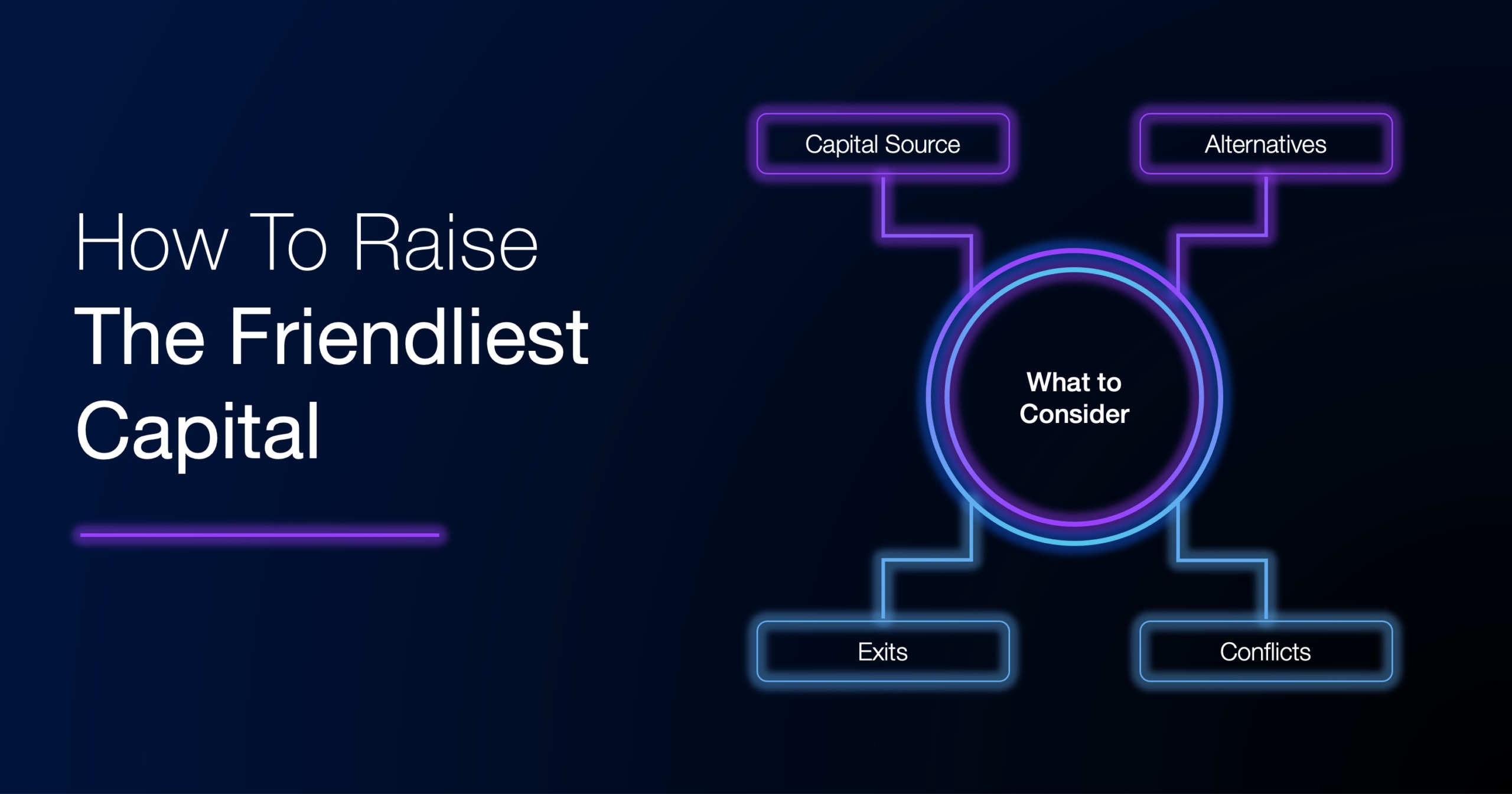How To Raise The Friendliest Capital
When entrepreneurs raise capital, there are two things that are generally thought of as being most important: valuation and amount of capital raised. One attribute that is commonly forgotten is how friendly the capital is.
By “friendliness” we are referring to the covenants, adjustments, and resets attached to that capital.
Are there resets if you don’t hit certain milestones? Are there equity adjustments? How much control can this investor or these investors assert over your business? Do they have to consent to any major decisions?
In our opinion, the answers to these questions are far more important than valuation or the amount of capital being raised. Over the years, we have seen countless deals that start out 70/30 favoring the entrepreneur, and end 70/30 favoring the investor. We’ve seen entrepreneurs own less than 5% of their companies when they exited. ClearThink was founded to prevent these kinds of financial transactions.
When we founded our firm, we made the conscious decision to only be on the entrepreneur’s side of the table, allowing us to have no conflicts of interest when finding the friendliest capital for an entrepreneur.

What to Consider to Raise the Friendliest Capital
Whose Capital is it?
Does your capital source make investment decisions on behalf of a group of investors to which they answer or are they investing their own money? If they are making investment decisions on behalf of others, they are usually held to a higher standard with regard to the structure of their investments. Chances are, they will want more protection that an individual or family office investing their own capital.
We match our clients with our network of lenders and advise them through the credit financing process. Learn more ►
Explore Your Alternatives
We have found that many entrepreneurs, executives, and founders do not know all the funding alternatives that exist for your companies. Whether your company has no revenue or over $100M in revenue, chances are there are several different routes your company can take with regard to financing. We are always glad to discuss the potential options with a company.
Plan an Exit
This is the most important thing a company can do to raise friendly capital. Every investor’s fear is that they will become a captive minority in a private company and that management will keep increasing their salaries, and never plan any sort of liquidity event, thus making the investor’s shares in the company worthless. As a result, investors attach all kinds of adjustments to their investments.
The way to mitigate this fear, and thus raise capital on friendlier terms, is to plan a near-term, attainable exit. When appropriate, we like to structure capital raises in the public market. This gives investors the option to sell whenever they want and removes that fear of being a captive minority. That freedom makes them comfortable giving friendlier terms to companies.
Avoid Conflicts of Interest
Many people engaged to identify potential capital partners are receiving a commission from that capital source, as well as from the client company. As a result, they may be biased and bring you to entities that give them the highest commission, rather than the entities that give you the best terms, or be the best fit for your company.
At the inception of our firm, we made the conscious decision to only be on the entrepreneur’s side of the table. We do not receive any compensation from capital on transactions. This allows our interests to align with a company’s interests and allows us to be agnostic with regard to the capital source for a transaction.
Seeking capital? Let’s discuss how we can help. We are always happy to discuss the funding and growth options available to a company. Get in touch with our team below.









